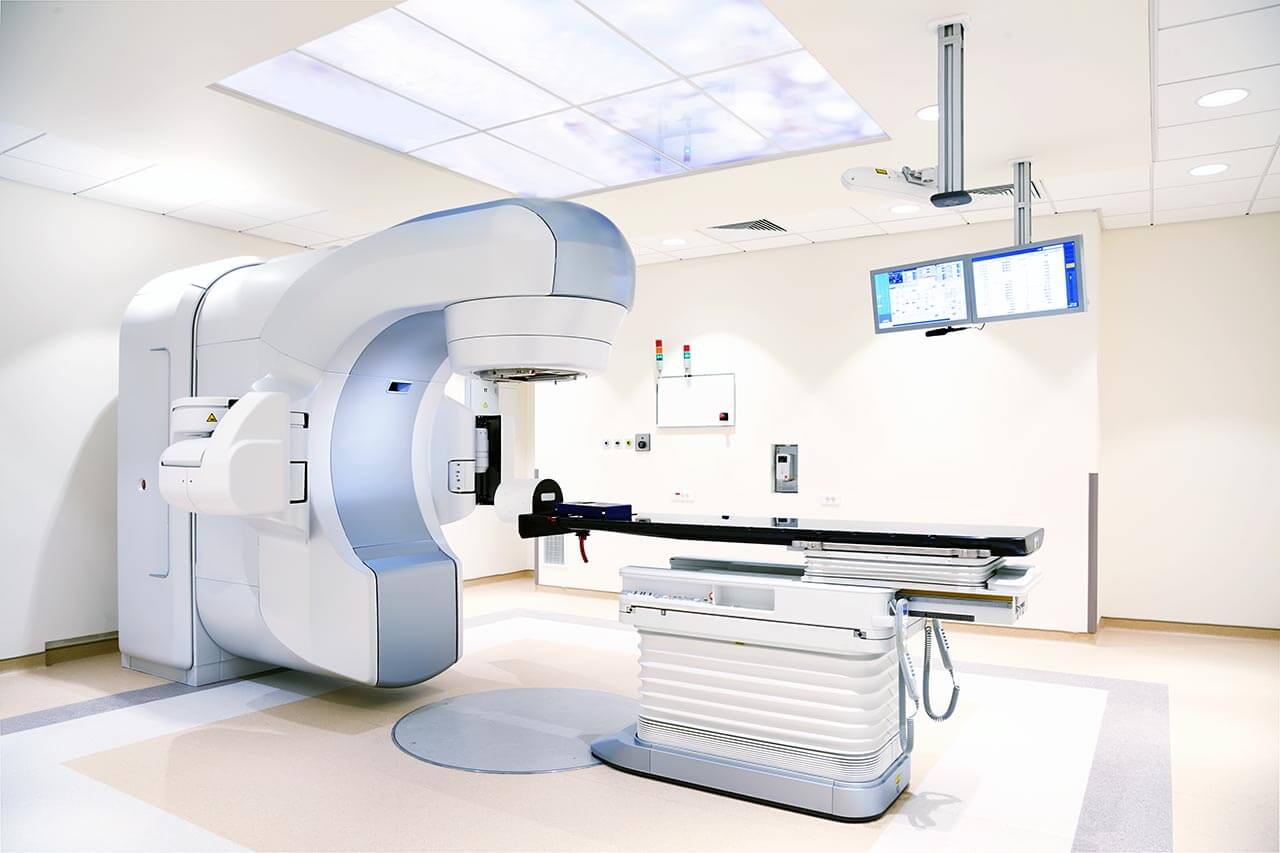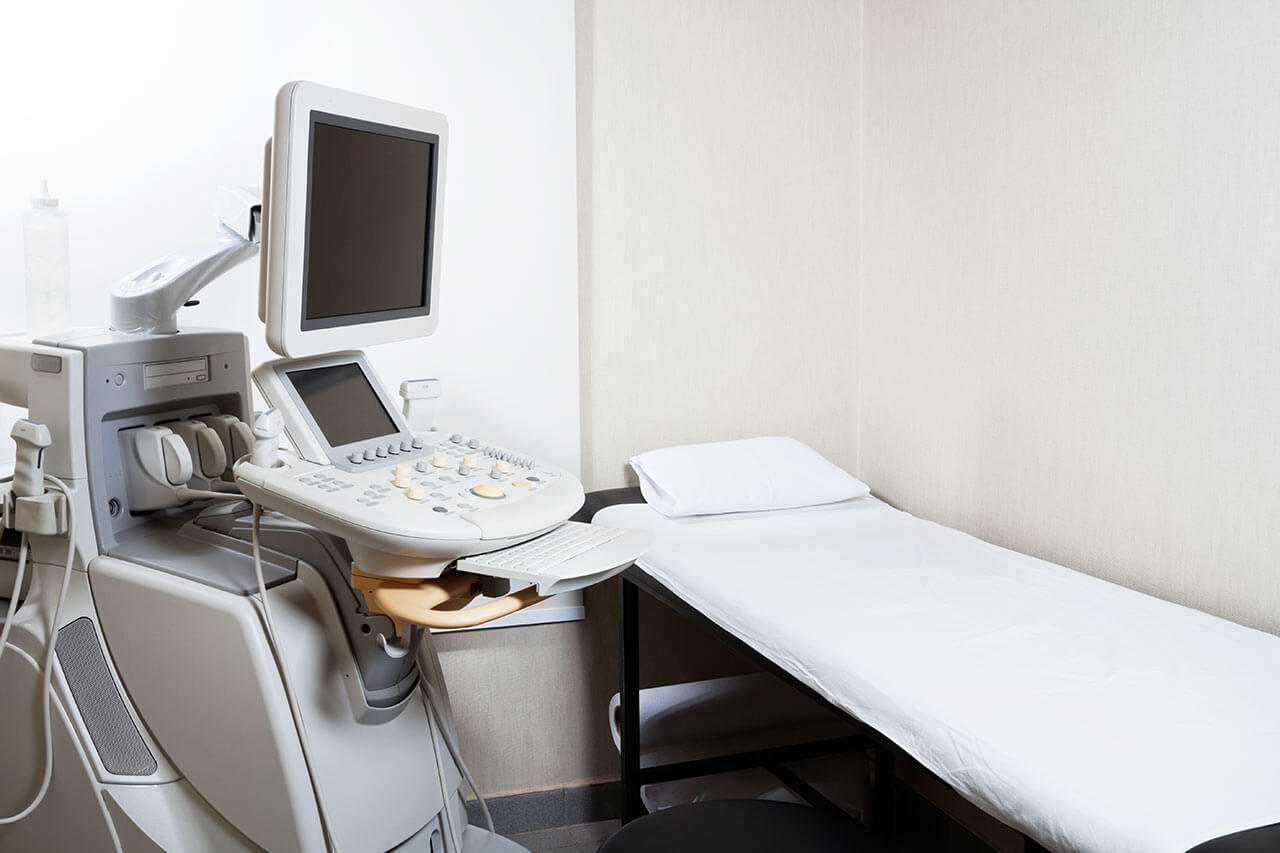
The program includes:
- Initial presentation in the clinic
- clinical history taking
- general clinical examination
- laboratory tests:
- complete blood count
- clinical urine test
- kidney function test (creatinine, urea)
- blood coagulation analysis (aPTT, PT, INR)
- inflammation indicators (CRP, ESR)
- complete hormonal analysis
- tumor markers
- PSA
- semen analysis
- abdominal and pelvic ultrasound
- prostate and testicular transrectal ultrasound
- CT scan (on indication 650 €)
- MRI scan (on indication 1200 €)
- biopsy with histological examination (on indication 2000 €)
- nursing services
- consultation of related specialists
- consultation of the chief physician and all leading experts
- development of individual treatment plan
- written statement
Required documents
- Medical records
- MRI/CT scan (not older than 3 months)
- Biopsy results (if available)
Service
You may also book:
 BookingHealth Price from:
BookingHealth Price from:
About the department
The Department of Pediatric Nephrology at the Pediatric Diagnostic Hospital M1 Munich offers the full range of services in this medical field. The department's team of doctors admits children and adolescents with various diseases of the kidneys and urinary tract. Young patients with kidney lesions caused by systemic diseases can also seek medical attention at the healthcare facility. The state-of-the-art systems for ultrasound scans are available in the department's diagnostic rooms. Doctors also have all the necessary resources to carry out an expanded range of laboratory tests of the urinary system. Radioisotope tests are also available, and these are conducted in cooperation with partner medical facilities. A treatment regimen for each child is individual and is usually based on drug therapy. Doctors strictly follow current clinical protocols and the recommendations of professional societies. All conditions are created in the department so that children feel as comfortable as possible and do not experience any fear of the upcoming treatment. The department is headed by Dr. med. Markus Benz.
Treatment of glomerulonephritis in children is one of the priorities of the department's doctors. This pathology affects the renal glomeruli, which filter the blood. Glomerulonephritis is accompanied by a number of unpleasant symptoms, including fever, loss of appetite, fatigue, general malaise, facial and body swelling, increased or decreased blood pressure, urinary disorders, etc. If left untreated, glomerulonephritis may lead to kidney failure, uremia, a brain hemorrhage, or other severe complications. To make a diagnosis, the department's specialists conduct a number of laboratory tests, including a complete blood count, a urinalysis, a urine culture, and other tests. An integral part of the diagnostic process is an ultrasound scan of the kidneys, bladder, and urinary tract. A kidney biopsy is often required, the results of which determine the tactics of further treatment. Whenever required, other types of hardware diagnostics can be used. When developing a treatment regimen, pediatric nephrologists take into account the stage of the pathological process, the child's age, their general condition, and other factors. The basis of therapy is a salt-free diet and the intake of medications.
The department's doctors have vast experience in treating children with polycystic kidney disease, a congenital disease accompanied by the formation of multiple cysts in the organ. The pathology causes structural changes in the kidney tissues, which leads to organ dysfunction. The first stage of the diagnostic process includes the collection of anamnesis, a clinical examination, and palpation of the abdominal organs. A doctor then prescribes a set of laboratory tests, kidney ultrasound scans, urography, and renal scintigraphy. In some cases, CT or MRI scans can also be performed. As for the treatment, there is no specific therapy that can cure polycystic kidney disease. The department's doctors carry out drug therapy to relieve symptoms and prevent any complications. If a child has an unfavorable course of the disease, resection or even total removal of the polycystic kidney may be required.
A special focus of the department's clinical practice is treating children with chronic kidney disease. Chronic kidney disease can develop due to congenital malformations and hereditary kidney diseases, recurrent urinary tract infections, glomerulonephritis, nephrotic syndrome, and other pathologies. The main diagnostic tests for suspected chronic kidney disease are blood and urine tests, ultrasound scans, and a kidney biopsy. The therapeutic options at the disposal of the department's doctors include conservative treatment: a salt-free and low-protein diet, taking diuretics, hormone preparations, and antihypertensives. The full recovery of kidney function in patients diagnosed with chronic kidney disease is often not possible, so the goal of therapy is to prevent disease progression and relieve symptoms. If conservative therapy does not give the desired result, the child is indicated for renal replacement therapy. The last-line therapy is kidney transplant surgery.
The department provides diagnostics and treatment of the following diseases in children:
- Recurrent urinary tract infections
- Voiding dysfunction
- Bedwetting (nocturnal enuresis)
- Glomerulonephritis
- Polycystic kidney disease
- Nephrotic syndrome
- Alport syndrome
- Tubulopathy
- Chronic kidney disease
- Other urinary system diseases
The department's range of medical services includes:
- Diagnostics
- Laboratory tests: detailed blood and urine tests
- 24-hour blood pressure monitoring
- Kidney ultrasound scans
- Kidney biopsy
- Renal scintigraphy
- Uroflowmetry
- Electromyography of the pelvic floor muscles
- Treatment
- Drug therapy
- Diet therapy
- Other diagnostic and treatment methods
Curriculum vitae
Higher Education and Professional Career
- 1993 - 2000 Human Medicine studies at the Eberhard Karls University of Tuebingen.
- 2001 Thesis defense on the subject: "Study of the syndrome of biologically inactive growth hormones: measurement of biological activity in vitro and analysis of the GH-1 gene mutation".
- 2007 Board certification in Pediatric and Adolescent Medicine preceded by training in the Department of Pediatric and Adolescent Medicine at the University Hospital of Ludwig Maximilian University of Munich.
- 2007 - 2009 Work in the Departments of Pediatric Nephrology at the University Hospital of Ludwig Maximilian University of Munich and the University Hospital Heidelberg.
- 2009 Specialization in Pediatric Nephrology.
- 2010 - 2013 Physician in the Department of Pediatric and Adolescent Medicine at the University Hospital of Ludwig Maximilian University of Munich.
- 2010 - 2014 Physician in the Department of Pediatric Nephrology at the KfH Nephrology Center, Schwabing Hospital Munich.
- 2013 - 2014 Senior Physician, Department of Pediatric Nephrology at the University Hospital of Ludwig Maximilian University of Munich.
- 2013 - 2017 Consultant Physician, Department of Pediatric Nephrology at the Pediatric Diagnostic Hospital M1 Munich.
- Since 2015 Consultant Physician, Department of Pediatric Nephrology at the "Third Order" Catholic Hospital Munich.
- Since 2017 Consultant Physician, Department of Pediatric Nephrology at the "Third Order" Catholic Hospital Passau.
Additional Qualifications
- 2002 Certified Asthma Trainer.
- 2007 Family Trainer for Nephrotic Syndrome.
- 2008 Medical Course in Clinical Research.
- 2008 Training, "Importance of Psychotherapeutic Training".
- 2011 Certified Incontinence Trainer according to KgKS.
- 2011 "Clinical Research" Course, Heidelberg.
- 2012 Medical Genetic Counseling.
- 2012 Family Trainer for Chronic Kidney Failure.
Prizes
- 2007 Ranniere Foundation Prize for Family Training in Nephrotic Syndrome.
- 2009 Else Kröner Award from the Society of Pediatric Nephrology.
Memberships in Professional Societies
- German Society of Pediatric and Adolescent Medicine.
- German Society of Pediatric Nephrology.
- European Society of Pediatric Nephrology.
- International Pediatric Nephrology Association
- South-German Society of Pediatric and Adolescent Medicine.
- Training Group on Incontinence in Childhood and Adolescence (KgKS).
- Training Group for Patients in Childhood and Adolescence (KomPas).
- Association of Patient Training Centers.
- Society for Dialysis and Kidney Transplantation in Children, Munich.
- German Society for Organ Transplantation.
- German Hypertension League.
Photo of the doctor: (c) M1 Privatklinik AG
About hospital
The Pediatric Diagnostic Hospital M1 Munich is a top-class medical facility specializing in pediatric and adolescent medicine. The hospital is located in the very heart of Munich. All areas of pediatric and adolescent medicine are represented here, and only high-quality medical services are provided, taking into account a child's diagnosis, his age, general health condition, and other important factors. The young patients are in the safe hands of excellent professionals who have unique clinical experience in treating pathologies in children and get along well with them.
The hospital is proud of its state-of-the-art diagnostic equipment, including devices for ultrasound scanning, comprehensive diagnostics of the cardiovascular system, and the innovative 4D MOTION LAB system, with which doctors can assess the condition of the spine and other anatomical structures of the musculoskeletal system without the use of X-rays.
The hospital has eight departments, and each of them is represented by a highly qualified team of specialists. Medical services are available here in the fields of pediatric pulmonology, endocrinology, hematology, oncology, cardiology, neurology, gastroenterology, nephrology, allergology, and orthopedics. Depending on the complexity of the clinical case, both conservative and surgical treatments can be provided. In the course of surgical interventions, low-traumatic techniques are almost always used, which contribute to the rapid recovery of children.
The hospital's doctors provide patients with highly qualified medical care in accordance with high international standards. In addition, the medical team makes every effort to make a child feel good. An atmosphere of calm and safety reigns here. The Pediatric Diagnostic Hospital M1 Munich enjoys an excellent reputation not only in Germany but also in many other European countries, so parents confidently trust the health of their children to the doctors at this healthcare facility.
Photo: (с) depositphotos
Accommodation in hospital
Patients rooms
The patients of the Pediatric Diagnostic Hospital M1 Munich live in cozy and comfortable rooms. The patient rooms have a modern design and light colors. Each patient room has an ensuite bathroom with a shower and a toilet. The patient room furnishings include an automatically adjustable bed, a bedside table, a table and chairs, a telephone, and a flat-screen TV. Wi-Fi access is also available. There are boxes with toys and children's books in the patient rooms so that children can have a good time. Walking along the corridors of the hospital, young patients will also see soft toys, toy cars, and other interesting things to play with. The hospital offers accommodation for the child in the patient room with one of their parents.
Meals and Menus
The hospital offers three delicious meals a day: breakfast, lunch, and dinner. If a child is on a diet or certain foods need to be excluded from the diet, an individual menu will be offered.
Further details
Standard rooms include:
Accompanying person
Your accompanying person may stay with you in your patient room or at the hotel of your choice during the inpatient program.
Hotel
You may stay at the hotel of your choice during the outpatient program. Our managers will support you for selecting the best option.




